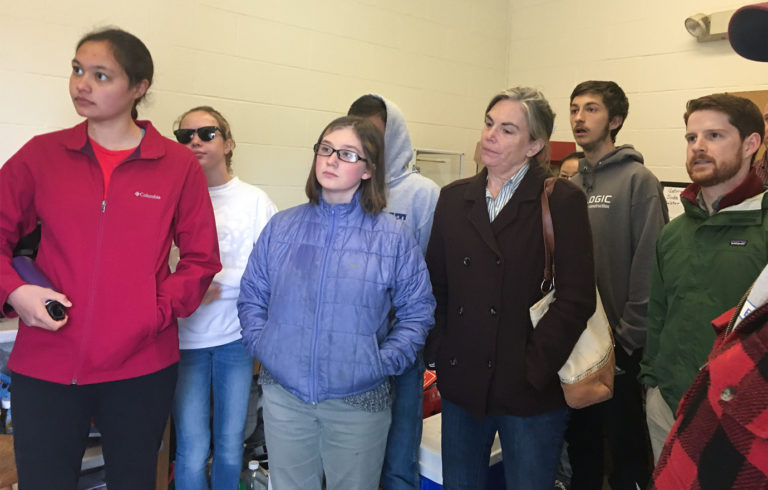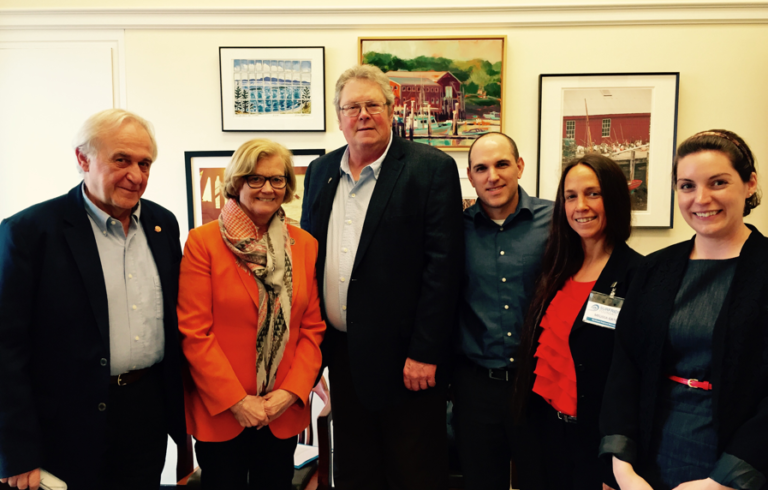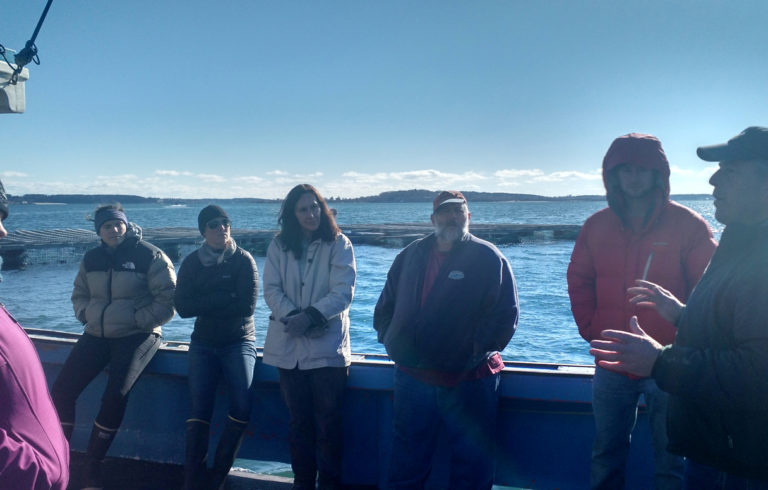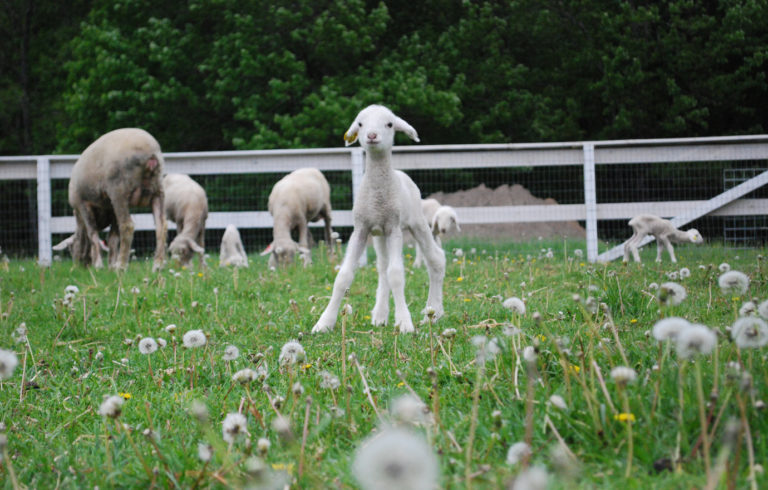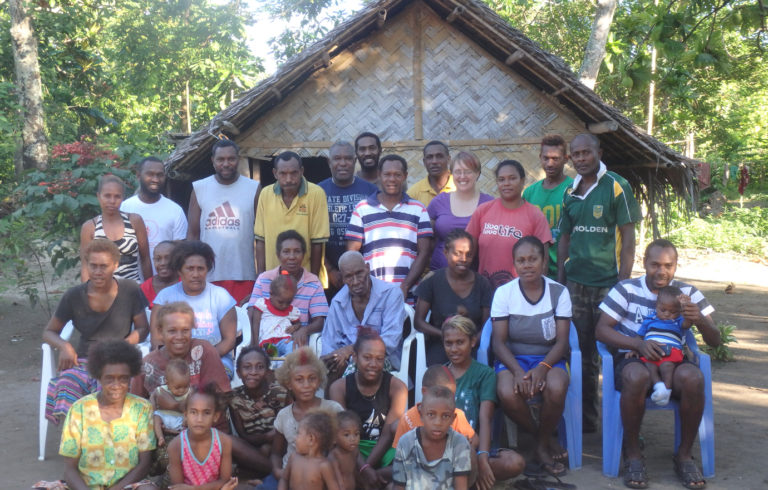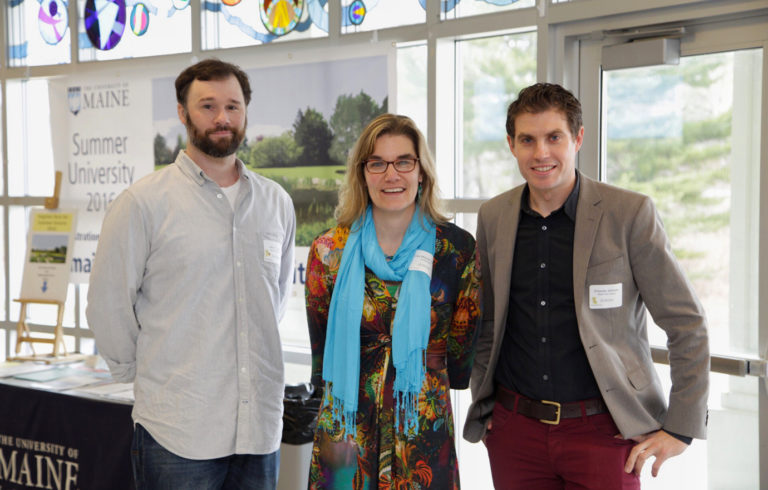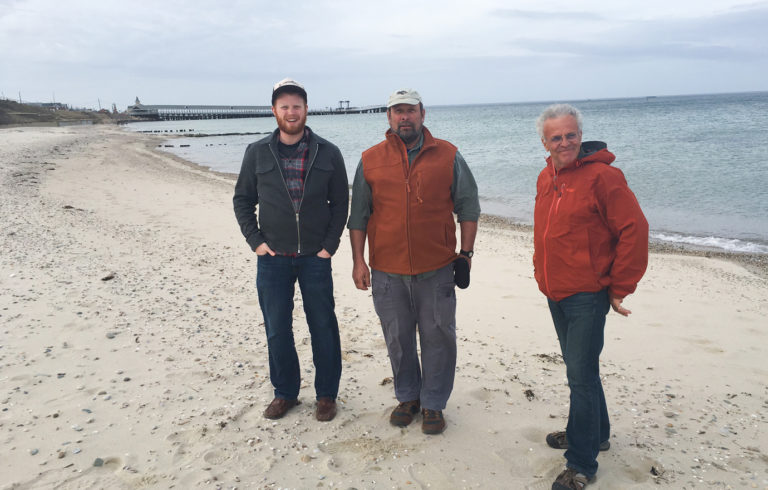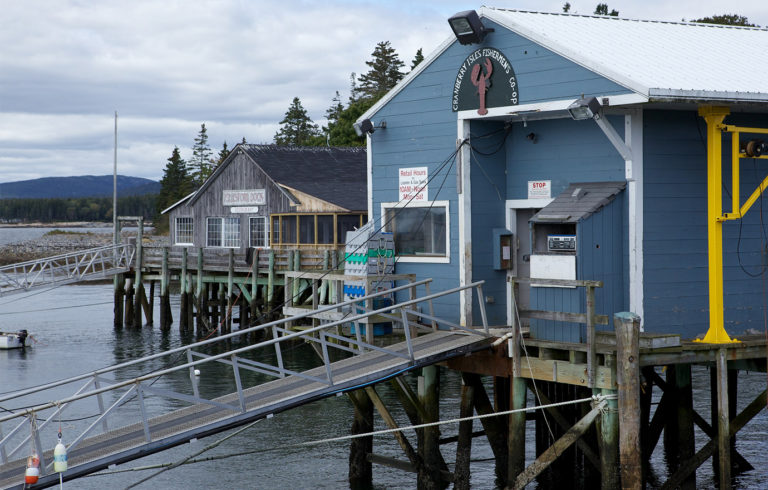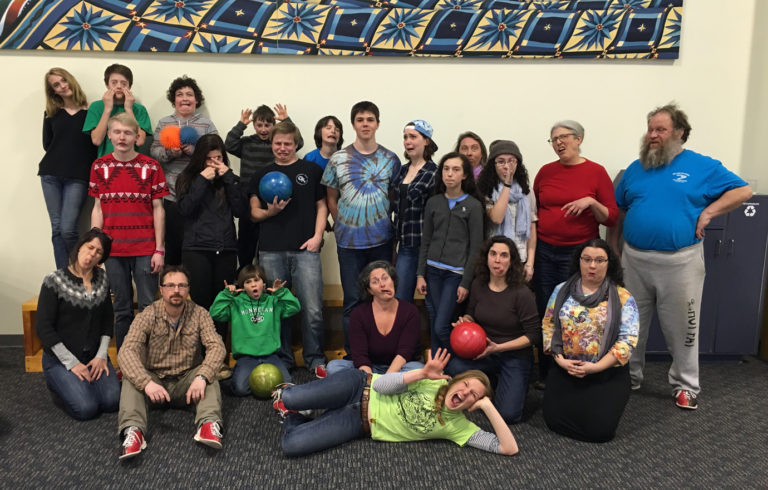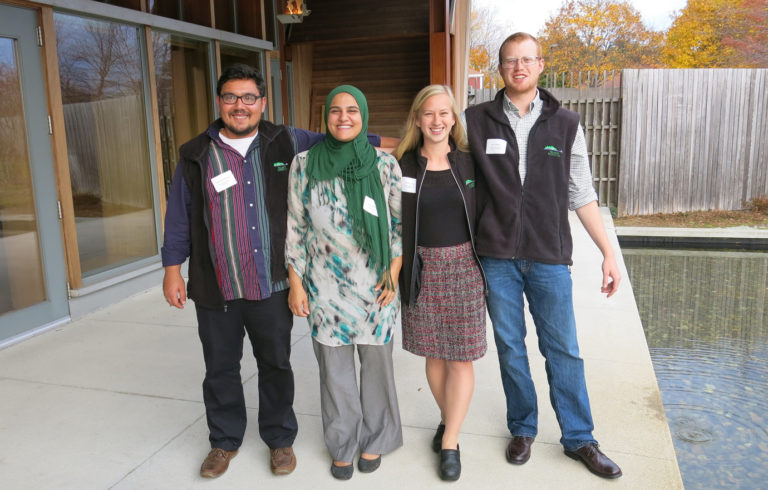June 16, 2016
Students light the way for Islesboro School LED retrofit
A student-led group at Islesboro Central School (ICS) is working to implement an inspiring energy project. In partnership with the Islesboro Energy Team (IET) and supported by a grant from the Island Institute’s Community Energy Action Team (CEAT) program, the students have been investigating the school’s electricity use since March 2016. As you can see in Finn’s quote above, they are motivated by concerns over the climate, a desire to find improved solutions for their school, and to reduce waste. The students calculated that the school spends an average of $3,425 each year on lighting alone.
May 13, 2016
Maine's congresspeople get first look at New England's upcoming ocean plan
I joined other ocean stakeholders from New England, and travelled to Washington D.C. this week. We were there to meet with congressional delegation about the upcoming release of the Nation’s first regional ocean plan under the National Ocean Policy.
The National Ocean Policy, established by Presidential Executive Order in 2010, called for the formation of nine regional planning bodies to better manage our oceans and coasts. Ocean planning is a way to make better, more efficient decisions about different ocean uses such as fishing, offshore energy and recreation as well as accounting for environmental changes and the health of the ocean and its creatures.
May 9, 2016
Commercial Currents: Expand into Aquaculture with Business-to-Business Connections
This blog series is a resource for island and coastal small businesses. To find other buoyant stories, go to the blog home page and select “economic development” from the drop down menu to filter blog posts by this topic, or go to islandinstitute.org/blog/economic
April 21, 2016
Ramblers Way Farm partners with the Island Institute to grow Earth Day volunteer hours
We’re excited to share with you a partner initiative with Ramblers Way Farm. The pioneering clothing company’s employees will contribute 5% of their paid work hours volunteering for the Island Institute. This new partnership supports the company’s good-natured ethos, and bolsters efforts of the Island Institute toward Maine’s island and remote coastal communities. As natives to Maine, the Chappell Family Founders of Ramblers Way Farm have long been committed to supporting the Island Institute.
April 20, 2016
Maine to Mota Lava
I wasn't there for more than two days when I realized that I had picked up conversations with islanders on Mota Lava in almost the same places I had left them with islanders in Maine. I hadn't left work behind, I'd just added palm trees.
April 7, 2016
Artists and Makers get a business boost
The Archipelago Artists and Makers Conference was reimagined this year to grow beyond an invitation-only event, and it expanded well beyond our expectations to include over 130 artiststhat attended from all four corners of the state - Kennebunk to Houlton and Bethel to Machiasport. Maine has always been an inspiration for artists: jewelers, painters, candle makers, fiber artists and sculptors abound.
April 7, 2016
Islands, Great and Small, Find Common Energy Solutions
Monhegan Island, Isle au Haut, and Matinicus Island face critical junctures in their energy future.Monhegan and Matinicus have the highest electricity rates in New England, and Isle au Haut is reliant on a 33-year-old, two-inch-thick cable as its sole connection to the mainland for power. t the end of March, representatives from power companies on all three islands visited Nantucket and Martha’s Vineyard, MA to share experiences and strategies from their work creating sustainable energy systems as part of the Island Institute’s third annual Southern New England Exchange Trip.
April 6, 2016
Commercial Currents: Considering legal structures for your business
In this blog post, the Island Institute’s Economic Development staff share the benefits and risks of small business structures: sole proprietorship, LCC, cooperative, and S Corp. To easily find future posts in this blog series for island and coastal small businesses, go to the blog home page and select “economic development” from the drop down menu to filter blog posts by this topic, or go to islandinstitute.org/blog/economic.
March 30, 2016
Once a TLCer, always a TLCer
The Outer Islands Teaching and Learning Collaborative has reached a milestone: the first class of students involved in the TLC are about to graduate high school. In March, they got to see each other for the first time in years.
March 8, 2016
Five reasons why it's great to be an Island Fellow
The Island Fellows Program is one of the signature programs of the Island Institute. Since 1999, the Island Fellows Program has placed college and master’s degree graduates in Maine’s coastal and year-round island communities for one to two years. Fellowships provide a unique opportunity for recent graduates to apply their skills and experience to help build sustainability within communities whose way of life and identity face many challenges.

